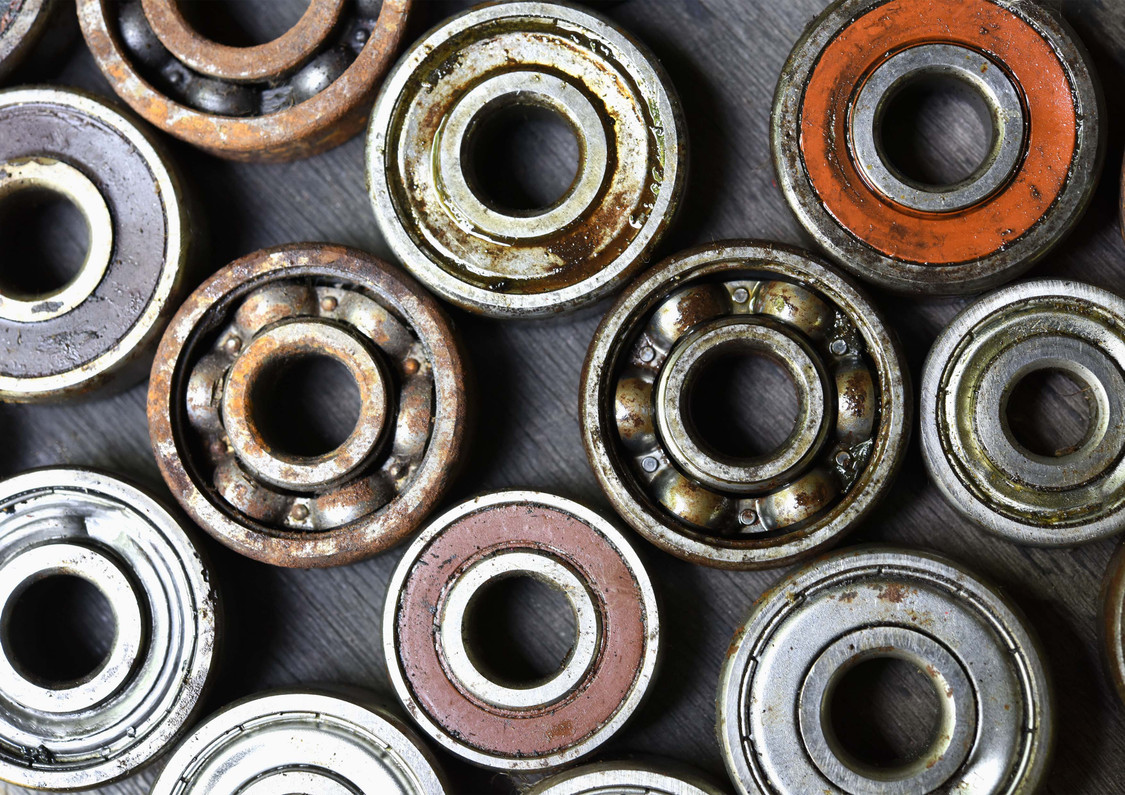Why Bearings Fail
Monitoring and maintenance are fundamental to maximising bearing service life and machinery performance and preventing damage and failures.
Bearing failure means the bearing can no longer perform correctly, often leading to machine shafts failing and machinery breakdowns. Unplanned downtime comes with high associated costs owing to unscheduled maintenance, replacement parts, and paused production.
The causes of bearing failure can vary. According to SKF “9.5% of all bearings fail because of operating conditions and the need to be replaced before the applications machine life is over.” To prevent bearing failures, it is vital to regularly monitor the condition of the bearing and its performance to spot early signs of failure.
Identifying Early Signs of Bearing Failure: The Importance of Monitoring
Early detection is essential when preventing catastrophic bearing failures. Identifying the early signs allows the user to replace the bearing before any damage is done to the machine. When monitoring the bearing for abnormalities, the most reliable indicators are noise, vibrations, and temperature.
Noise is an easy irregularity to spot by simply listening. While healthy bearings generate a soft purring noise, loud metallic sounds indicate something is wrong. Metallic sounds, grinding, or squeaking could be caused by abnormal load, incorrect mounting, contact of rotating parts, or incorrect lubricant.
These problems can be fixed by simply correcting how the bearings are seated or aligned during fitting. In other instances, simply replenishing or changing the lubricant to ensure the bearing is greased correctly may remedy the problem.
Lubrication Matters: Navigating the Life Cycle of Bearings
One of the types of bearing failures is due to inadequate or incorrect lubrication. Lubrication is critical in bearing functionality, as too much or too little can affect the performance and lead to failure. A lack of lubrication can lead to seizures, heat generation, and scoring.
On the other hand, too much lubrication can lead to rolling elements slipping and damaging the cage or raceways. The lubricant’s effectiveness can be affected if the bearing becomes contaminated. This can occur due to the seal failing and fluids such as water, oil, etc, leaking into the bearing.
To counteract these bearing failures, it is beneficial to replace the bearing or lubricant to reduce the risk of failure. In addition to this, it is important to clean the housing and other parts to ensure the machinery will operate correctly.
The Best Lubrication for Bearings
There are two types of bearing lubricants oil and grease. Oils are better suited to high temperatures; they are easy to drain and change. Oils are used for applications that require heat transfer. However, oils are more likely to leak with the potential to harm the environment.
On the other hand, grease leaks less easily than oil and typically doesn't require maintenance as often. But grease can be more expensive and, when maintenance is required, takes longer to clean out and change than oil does. Greases supposedly adhere to bearing surfaces better than oil.

Overheating Bearings: Understanding the Heat Issues
Monitoring the temperature of bearings is essential in avoiding failure, as a rise in temperature can be one of the indicators of bearing failure. Different tools can be used to monitor temperature. SKF has a few different Thermometers available, both contact and non-contact, which can be used to measure a bearing’s operating temperature.
Many different factors contribute to a bearing overheating. Overheating can be caused by insufficient or improper lubrication, meaning not enough lubricant or the wrong lubricant is being used for that specific bearing and application.
This problem perpetuates itself as overheating can also lead to lubrication to purge from the bearing, reducing the amount and leading to failure. The temperature should be regularly checked during operation to spot overheating early to prevent significant damage.
Vibration-Related Failures: Diagnosing Oscillations
Vibration is another symptom of bearing failure. Excessive vibration can indicate many different problems with a bearing, including flaking; it occurs on the inner ring and is caused by applying too much load to the bearing. Brinelling is another problem that can both cause and be caused by increased vibration.
False brinelling can occur when vibrations act on the bearing while it is stationary (non-rotating), often during improper transportation and handling of new machinery. True brinelling is caused by excessive or shock loads from incorrect mounting, drops during handling, or impact loads during operation. In either case, the bearing must be replaced.
Incorrect Mounting: Understanding The Effects Of Poor Technique
Incorrect mounting is a huge problem, as 16% of all premature bearing failures are caused by poor fitting. Mounting a bearing correctly allows it to operate efficiently and fulfil its full service life. Poor fitting can damage the bearing's seat in the housing or on the shaft, or the bearing itself, be that the seals, cage, raceways, or rolling elements.
Misalignment of the bearing relative to the shaft/housing or the bearing races can cause the load to be unevenly distributed/supported, putting strain on the bearing. Some bearings can accommodate certain types of misalignments to a degree, but those that can’t, or when the misalignment falls outside of the bearing’s capabilities, and this is when failure can occur. Properly mounting bearings is essential for getting the best performance out of them. Learn how to correctly mount your bearings by reading our latest blog.
Proactive Approaches to Ensure Bearing Reliability
To have the most efficient machine performance and avoid unplanned downtime, adopt proactive strategies to inspect your bearings’ health and solve problems before damage can occur. It is important to monitor the key factors– noise, temperature, vibration –that act like early warning signals of bearing damage.
Here at Quality Bearings Online, we can help you with any bearing problems you may encounter, as our dedicated sales team has expert product knowledge to support you. Additionally, we have an in-house sourcing team, ensuring we always have the products our customers need. Check out our website for all maintenance and condition monitoring tools to help avoid bearing failures.
For any help from our technical team contact us or email us. sales@qualitybearingsonline.com
Contact Us
Recent Posts
-
Our Commitment to our US Customers
At Quality Bearings Online, our customers are at the heart of everything we do. Whether you're …16th Apr 2025 -
The Ultimate Guide to High-Performance CNC Machine Bearings
CNC machine bearings are mechanical components designed to minimize friction between moving par …3rd Apr 2025 -
Quality Bearings Online Awarded Independent Seal Of Excellence
For the fourth consecutive year, we’re thrilled to have won the Feefo Platinum Trusted Service …12th Mar 2025


























